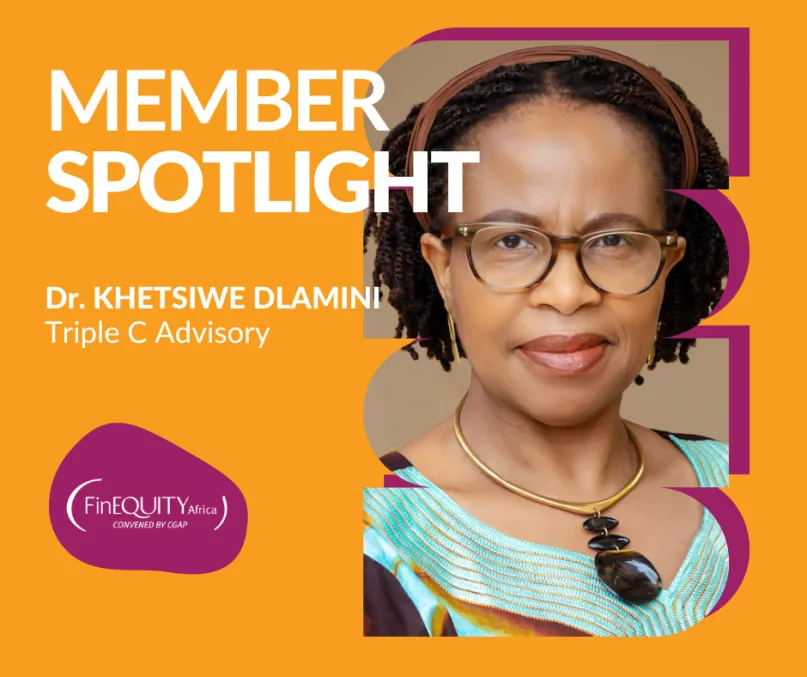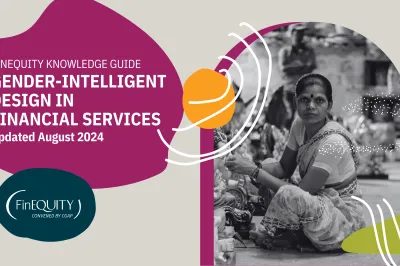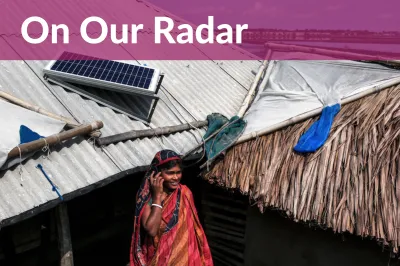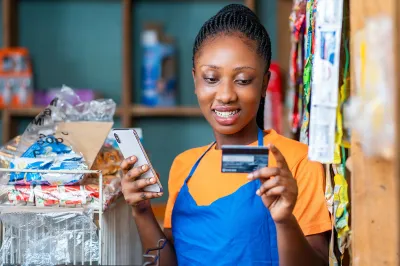Member Spotlight: Dr. Khetsiwe Dlamini

FinEquity: Tell us a little bit about yourself. A fun fact? Something that might surprise most people? Your superpower?
Dr. Khetsiwe Dlamini: My name is Dr Khetsiwe Dlamini. I was born and bred in Eswatini (formerly Swaziland), but I am now based in Nairobi, Kenya. Driven by my commitment to gender equality, I founded Triple C Advisory (TCA), an African gender lens and impact advisory firm. I have been working in development finance for over two decades. Before establishing TCA, I was Chief of Staff at UN Women for five years, and before that, I served as Principal Operations Officer at the International Finance Corporation for more than 15 years. I have an MBA from University of Wales, and a Doctorate in Business Leadership from University of South Africa.
A fun fact that not many people might know about me is that I have a real aversion to elevators. Given the choice, I'd rather climb 20 flights of stairs than step into one of those small, confined boxes. It makes me uneasy being totally dependent on man-made machinery to get where I need to go. I like to think of myself as human first, woman second, and elevators just don't seem to fit into that equation.
FinEquity: Tell us a little bit about yourself. A fun fact? Something that might surprise most people? Your superpower?
Dr. Khetsiwe Dlamini: My superpower? I think it's my ability to use both sides of my brain. My right brain works when I get into visioning and innovation. I can come up with very creative approaches and ideas. My left brain activates when it comes to the seamless execution of those ideas, making sure they come to life with flawless execution. I use this superpower in my work to solve complex problems and design impactful programs.
FinEquity: What originally drew you to the women’s financial inclusion and economic empowerment sector? What has kept you here?
Dr. Khetsiwe Dlamini: What originally drew me to the women’s financial inclusion and economic empowerment sector was my passion for diversity and inclusion. When I joined the sector, it struck me that our continent had just as much to offer as Asia or Eastern Europe, but there were a few voices that could contribute to the conversation. I felt a strong resolve to stay and add our own home-grown solutions in advancing women's economic empowerment. I've been delighted to witness the change and progress made, since that time. We have made great strides especially the fact that FinEquity now boasts an Africa chapter, and our continent is well represented on the global stage.
FinEquity: Any current projects you’re working on/or recently worked on that you find particularly exciting/engaging?
Dr. Khetsiwe Dlamini: I enjoy working on engaging projects, especially those that use intersectional gender perspectives to optimize results. One notable initiative was with the African Union Commission (AUC), which focused on developing guidance for all African countries on accelerating the implementation of the second African Women's Decade (2020–30) on Financial and Economic Inclusion (FEI). We developed an African Women’s Financial and Economic Inclusion (AW-FEI) Index using the drivers of impact such as policy, regulation and access to finance, which we used to rank and map all African countries. The index served as a crucial baseline for generating insights and shaping a detailed roadmap with milestones leading up to 2030. Namibia and Cabo Verde achieved the highest index rankings due to their responsive gender policies and robust financial infrastructure, high female literacy rates and women’s entrepreneurial ability to turn cultural challenges into opportunities. In contrast, Guinea Bissau and Seychelles were at the lower end of the spectrum. Our findings were enriched by twelve case studies.
We developed and validated a toolkit aimed at helping countries boost African women’s financial and economic inclusion. We found that all too often, financial inclusion stops at facilitating access which may or may not enable women to advance up the economic ladder to create intergenerational wealth. Our guidance sought to eradicate poverty irreversibly by ensuring that access translates into economic empowerment and wealth creation.
FinEquity: What have been some of the most impactful findings you’ve come across in your career? What about in the last few years?
Dr. Khetsiwe Dlamini: In Africa, the intersection of age and gender presents significant challenges for young women. They face compounded barriers compared to their male peers, largely due to traditional gender roles. These societal norms often limit educational and employment opportunities for young women, as evidenced by UNESCO's data showing that girls are more likely to be out of school than boys in Sub-Saharan Africa, with only 55% of girls completing lower secondary school compared to 68% of boys. The World Bank highlights that a substantial proportion of young women in Africa work in the informal sector, approximately 89% compared to 82% for men, a landscape characterized by less secure jobs, lower wages, and limited social protection. Furthermore, financial inclusion remains a pressing issue; according to the Global Findex Database, only 37% of women in Sub-Saharan Africa have bank accounts, compared to 48% of men. This disparity in financial access further complicates their economic mobility and amplifies the discrimination they face, placing young women at a distinct disadvantage in an already competitive job market.
FinEquity: What are your top priorities for the remainder of 2024 (and beyond) for your work?
Dr. Khetsiwe Dlamini: My top priority for 2024 is to hire and support as many young African graduates as possible, helping them find fulfilling work and advance their careers. To amplify these efforts, I am collaborating with like-minded individuals and organizations to expand our impact. While my company is contributing to this mission, I recognize that it is just a small part of a bigger solution that's needed.
FinEquity: What can our members connect with you about/what can they ask you about?
Dr. Khetsiwe Dlamini: Members can connect with me on all things gender, particularly if interested in an intersectional approach. We work at the strategy, program and impact levels. We also offer training support on gender equality and other forms of diversity. Please connect with us on our website or LinkedIn.
FinEquity: What role does FinEquity play in your work? Where do you see value in this community? How has being a member shaped your work?
Dr. Khetsiwe Dlamini: FinEquity provides a platform for collaboration and knowledge sharing with diverse experts and organizations focused on financial inclusion and economic empowerment. The value of this community lies in its wealth of resources, innovative insights, and the collective experience that helps inform and enhance my work. Being a member has broadened my perspectives, enabling me to incorporate global best practices, and connecting me with a network of passionate professionals


